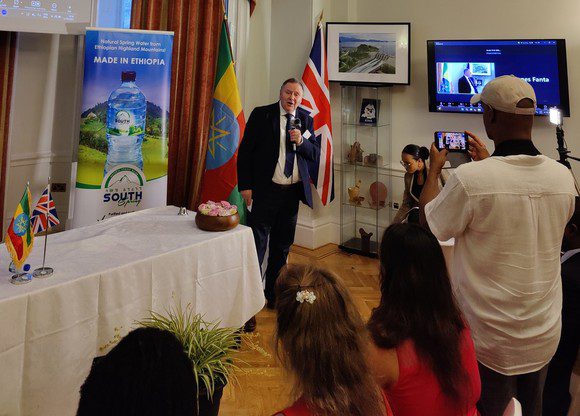Professor Carl Stephen Patrick Hunter OBE – Chairman, Coltraco Ultrasonics and Director-General, the Durham Institute of Research, Development & Invention (DIRDI) discusses Coltraco Ultrasonics’ role in safety-critical sectors, the UK’s post-Brexit trade environment and innovation in AI and IoT.
Could you provide an overview of Coltraco Ultrasonics and its role in advancing safety and operational efficiency across industries?
Coltraco Ultrasonics are a high-exporting advanced manufacturer of instrumentation and systems to save lives. We design instruments that enable fire companies to monitor the contents of highly pressurised gaseous extinguishing systems, through to monitoring negatively-pressurised HNs Hospital wards to prevent infection contagion from them to the rest of a hospital through to monitoring the watertight integrity of over 10,000 ships globally to protect their crew, ships and cargoes.
From your perspective, how has the UK’s post-Brexit trade environment impacted businesses in sectors such as shipping, defence, and research-driven innovation? What long-term adjustments do you foresee?
The array of UK Government policy economic, financial, trade, and defence and security successes since 2017 has been abundant. Taking Asia as an example, the UK has acceded to CPTPP, containing approximately 15% of the global economy, become the first European nation to become a Dialogue Partner with ASEAN, concluded an FTA with Australia containing one of the world’s most unique innovation catering for future technologies, deployed the Royal Navy’s Carrier Strike Group which worked with 43 nations, established the world’s most important strategic agreement, since NATO was established in 1949, in the AUKUS agreement between the UK-Australia-USA and the GCAP 6th generation air combat aircraft and air dominance system between the UK-Japan-Italy. All whilst permanently positioning Royal Navy assets in the Indo-Pacific and looking forward to next year’s Carrier Strike Group returning to the Indo-Pacific in 2025. Most recently the UK and India signed the Technology Security Initiative, whilst this month the UK and Singapore have signed a new artificial intelligence agreement, building on the 2022 Digital Economy and 2023 Emerging Technologies MoU. Most recently the UK hosted the European Political Community meeting in Blenheim Palace signalling the UK’s continuing commitment to its relationship with the EU, and building on its foundational commitment to Europe’s security as NATO’s second largest military power.
As Chairman of the Council on Geostrategy Forum, what are the critical challenges facing the UK’s maritime and defence industries in the current geopolitical landscape? How should these challenges be addressed?
The global security position is the most complex, contested and competitive than it has been in 35 years. 96% of all UK trade is carried on the oceans and 99% of its internet and financial transactions, under the oceans, in the undersea cable network. The clod is not in space, but under our oceans! The UK is a global maritime and a global underwater power. The vital strategic importance of the Euro-Atlantic and the Indo-Pacific are “indivisible” and they are co-joined by the Arctic Ocean. If you stand on the East Coast of England, where the Greenwich Meridian bisects the British coast, there is no land between there until you reach Pacific Russia. This is what AUKUS Pillar 1 – its submarine component – is about. Generating and building the world’s most advanced design of nuclear submarine for the Royal Navy and the Royal Australian Navy. if one secures underwater dominance by submarines and air dominance by the GCAP programme, we secure the next 70 years of global stability, security and prosperity.
Read more news and exclusive features in our latest issue here.
Never miss a story… Follow us on:
International Trade Magazine
@itm_magazine
@intrademagazine
Media Contact
Joseph Clarke
Editor, International Trade Magazine
Tel: +44 (0) 1622 823 920
Email: editor@intrademagazine.com








